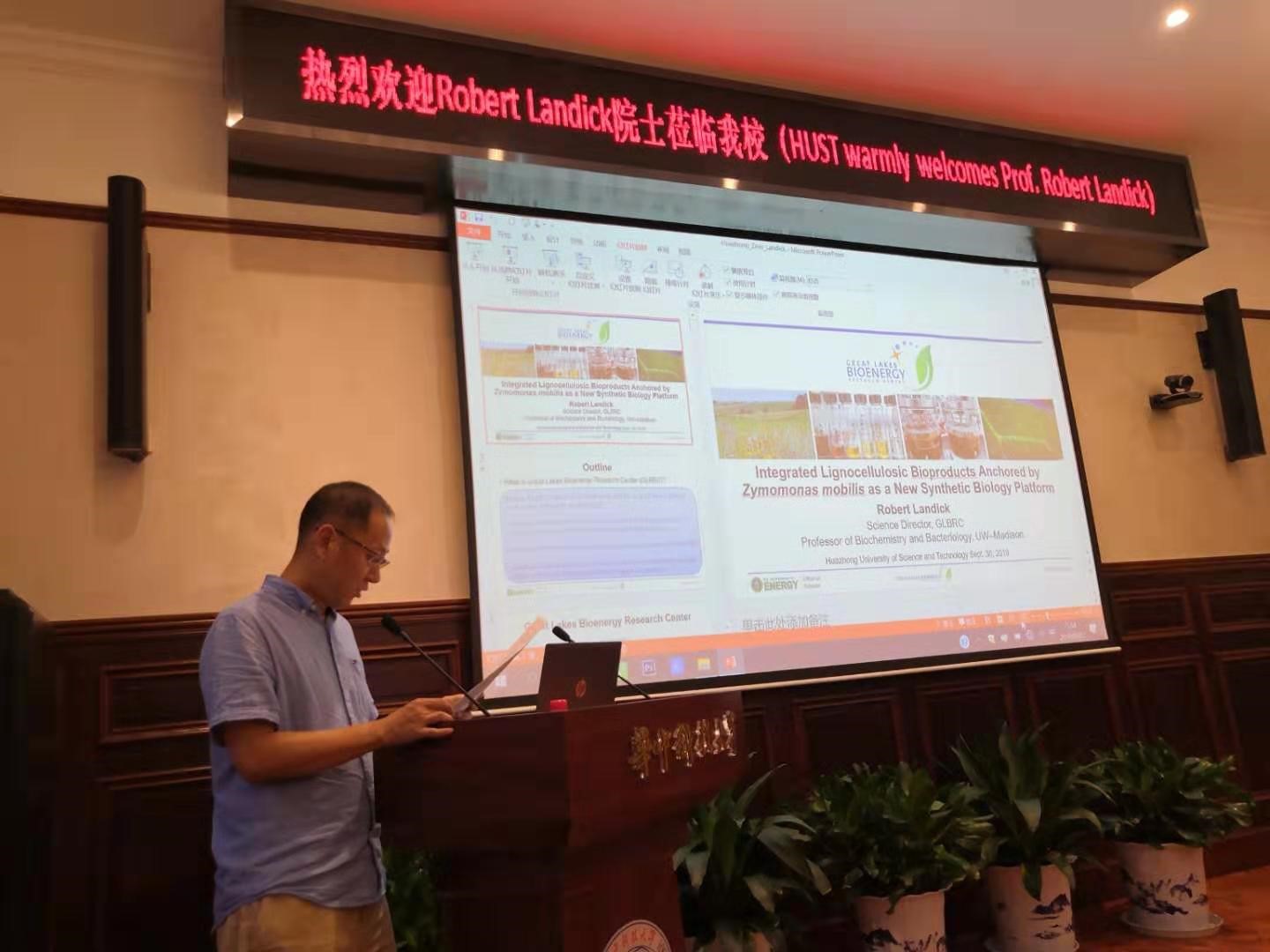(reporter: Hao Qiu & Siqi Jiang) 15:00 on September 30, 2019 in Wutongyu Academic Exchange Center, Professor Robert Landick, who was invited by Professor Shangxian Xie from the College of Life Science and Technology, presented an academic report titled “Biodesign of Zymomonas mobilis as a chassis for lignocellulosic bioproduct synthesis.”
Professor Jianfeng Liu, the vice dean of College of Life Science and Technology, hosted the seminar and gave warm welcome to Professor Landick. Professor Landick’s report first mentioned that a large number of non-food crops widely existing in the world are a very green and plentiful resource that can be used to serve people. The theme of this report mainly focused on how to use biological methods to convert this huge biomass of resources into biological products with economic value, so as to increase economic benefits and the rational use of these green resources. Professor Landick introduced their synthetic biology research on Zymomonas mobilis, which has high alcoholic fermentation ability and high efficiency. By systematical engineering to its carbon metabolic pathways, Zymomonas mobilis is able to convert the substrates such as switchgrass and other non-food crops into biofuel. They mainly modify MEP and other pathways in Zymomonas mobilis and inhibit the related competitive metabolic flux, so that the carbon flux flows to the desired target product alcohol as much as possible.



During the question-and-answer session, many students asked questions. Professor Landick listened to each student's questions with a smile and patiently answered them one by one. Even after the lecture, many students still wanted to raise questions, so the students, teachers and Professor Landick sat together in a circle and continued in an impromptu seminar. Professor Landick is approachable and patient, very willing to answer students' questions. After listening to the lecture, the students gained a deeper understanding of synthetic biology. They admired Professor Robert Landick and wanted to make their own achievements in the future. Professor Landick also said after the visiting to HUST that “The research of Biomass biodegradation and bioconversion, especially in lignin is very interesting and outstanding in HUST. The students in HUST are very active and smart, welcome the students from HUST to our graduate programs in the University of Wisconsin-Madison. This visit to HUST was too short but very enjoyable. Looking forward to next visit to HUST and more collaboration on research and education between HUST and our university.”
The Brief Biography of Prof. Robert Landick:
Prof. Robert Landick is Science Director for the US DOE Great Lakes Bioenergy Research Center and an expert on microbial gene regulation with particular emphasis on RNA polymerase structure, function, and regulation. He has served as a faculty member at the University of Wisconsin-Madison since 1996, most recently as the Charles Yanofsky Professor of Biochemistry and Bacteriology and the Laurens Anderson Professor of Biochemistry. He is a fellow of the American Academy of Microbiology, the American Association for the Advancement of Science, and the American Academy of Arts and Sciences. His decades of research into fundamental mechanisms of transcriptional regulation have defined the elemental mechanism and structural basis of transcriptional pausing, genome-scale mechanisms by which transcriptional factors and bacterial chromatin control gene expression, and the structure-function of RNA polymerase enzymes in diverse bacteria. He has authored over 200 scientific publications and maintains active current efforts in teaching and training, science administration, and basic bioscience research.